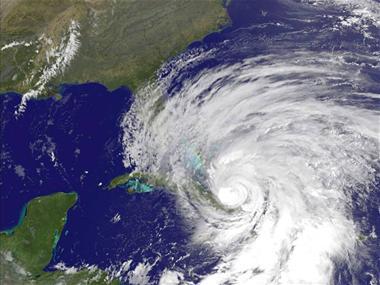
As Moore and Oklahoma City cope with the aftermath of the deadly tornado that struck down last week, we are reminded that severe weather can strike anytime and anywhere. The Weather Channel predicts 16 named tropical storms in the 2013 season, which officially begins June 1. Nine storms are expected to become hurricanes.
Hurricane awareness and preparedness can save lives and protect key assets. Hazards include storm surge, heavy rainfall, flash flooding, landslides, mudslides, high winds, tornadoes, and rip currents. Local governments prepare by updating and publicizing evacuation plans and routes and other safety tips. Evacuation planning has become more sophisticated as managers also consider the needs of those who cannot readily evacuate themselves. Provisions for pets are now part of many evacuation plans.
Mutual aid between local governments is the basic building block for disaster response and recovery efforts. In addition, the Emergency Management Assistance Compact (EMAC) is often tapped in major disasters. Operating in all 50 states, DC, the Virgin Islands, Puerto Rico, and Guam, EMAC is an effective way to provide mutual aid assistance across state lines. EMAC does not replace federal assistance, but complements it. Learn more about EMAC deployments here.
To update your disaster plan, check out ICMA’s 10 Useful Emergency Preparedness Reports, the Emergency Management Knowledge Network Group, or the recent Emergency Preparendess, Recovery article. Also, the Christian Science Monitor recently published Tornado Checklist: What to do & what myths to ignore, which provides great tips to assist communities teach residents preparedness.
New, Reduced Membership Dues
A new, reduced dues rate is available for CAOs/ACAOs, along with additional discounts for those in smaller communities, has been implemented. Learn more and be sure to join or renew today!
